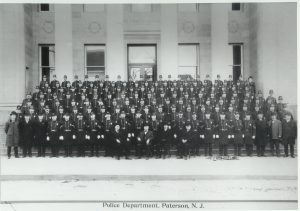New Jersey Employment Law Decision Examines Use of the Rule of Three in Civil Service List Bypass Appeals.
The Appellate Division of New Jersey’s Superior Court recently examined the use of the “Rule of Three” in New Jersey civil service list bypass appeals in the case of In the Matter of Antonio Salters, Fire Fighter, Township of Hillside.
Background
Salters applied to become a firefighter for the Township of Hillside, New Jersey. He passed the examination and ranked fourth out of forty eligible candidates on an open competitive employment list. Thirteen candidates on the list were ultimately hired, but the Township exercised the “Rule of Three” to skip Salter on the list. Salter appealed his bypass to the New Jersey Civil Service Commission.
 New Jersey Lawyers Blog
New Jersey Lawyers Blog


 with any remedy? Fortunately, New Jersey
with any remedy? Fortunately, New Jersey  These effects impact both
These effects impact both 
 the civil service system, do not enjoy.
the civil service system, do not enjoy. found to have abandoned her position she may be involuntarily terminated. Thus, the right to appeal these characterizations is important.
found to have abandoned her position she may be involuntarily terminated. Thus, the right to appeal these characterizations is important. jurisdictions which have not adopted civil service do not enjoy. Most government employment decisions which do not involve
jurisdictions which have not adopted civil service do not enjoy. Most government employment decisions which do not involve  employees can become permanent and receive all the protections of the Civil Service System, they must successfully complete a working test period.
employees can become permanent and receive all the protections of the Civil Service System, they must successfully complete a working test period.